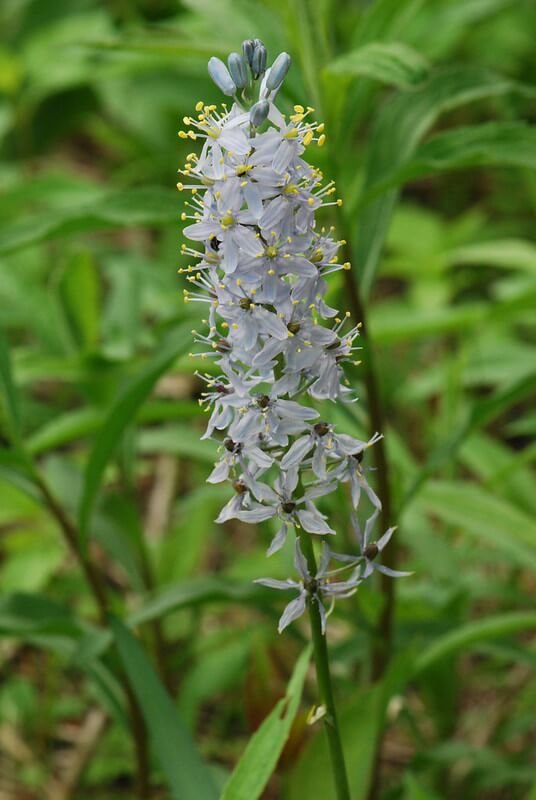 Image 1 of 2
Image 1 of 2

 Image 2 of 2
Image 2 of 2



Compass Plant (Silphium laciniatum)
Compass plant, this tall, eye-catching plant attracts an abundance of native bees with the occasional butterfly stopping by. This quintessential prairie plant is the host to 6 species of butterflies and moths and 10 different specialist bees (Johnson and Colla, 2023). It is beneficial for the threatened Two-spotted Eucoma and Giant Eucosma (mnfi.anr.msu.edu). However, due to loss of habitat, its status is listed as endangered in Michigan (mnfi.anr.msu.edu).
Photo credit: Joshua Mayer (1), Biodiversity Heritage Library (2)
Compass plant, this tall, eye-catching plant attracts an abundance of native bees with the occasional butterfly stopping by. This quintessential prairie plant is the host to 6 species of butterflies and moths and 10 different specialist bees (Johnson and Colla, 2023). It is beneficial for the threatened Two-spotted Eucoma and Giant Eucosma (mnfi.anr.msu.edu). However, due to loss of habitat, its status is listed as endangered in Michigan (mnfi.anr.msu.edu).
Photo credit: Joshua Mayer (1), Biodiversity Heritage Library (2)
Compass plant, this tall, eye-catching plant attracts an abundance of native bees with the occasional butterfly stopping by. This quintessential prairie plant is the host to 6 species of butterflies and moths and 10 different specialist bees (Johnson and Colla, 2023). It is beneficial for the threatened Two-spotted Eucoma and Giant Eucosma (mnfi.anr.msu.edu). However, due to loss of habitat, its status is listed as endangered in Michigan (mnfi.anr.msu.edu).
Photo credit: Joshua Mayer (1), Biodiversity Heritage Library (2)
Life Cycle: Perennial
Sun Exposure: Full-Partial
Soil Moisture: Medium/wet-Dry
Height: 6-10 feet
Plant Spacing: 3-4 feet
Bloom Time: June-September
Bloom Color: Yellow
Advantages: Pollinator Favorite, Bird Favorite, Deer Resistant Great Landscaping Plant
Host Plant: 6 species of butterflies and moths use this as a caterpillar host plant in our area (Johnson and Colla, 2023)
Specialist Bee: Andrena aliciae, Pseudopanurgus labrosiformis, P. rugosus, Dieunomia heteropoda, Melissodes coloradensis, M. illatus, M. vernoniae, M. wheeleri, Paranthidium jugatorium, Megachile inimica (Johnson and Colla, 2023)
Species of concern: State Status: Endangered (legally protected), State Rank: Ranging from critically imperiled to imperiled (mnfi.anr.msu.edu)
Beneficial for Endangered or Threatened Species: Two-spotted Eucosma (Eucosma bipunctella) (mnfi.anr.msu.edu), Possibly Giant Eucosma moth (Eucosma giganteana) (mnfi.anr.msu.edu)
Resource: Johnson, Lorraine, and Sheila Colla. A Northern Gardener’s Guide to Native Plants and Pollinators: Creating Habitat in the Northeast, Great Lakes, and Upper Midwest. Island Press, 2023





